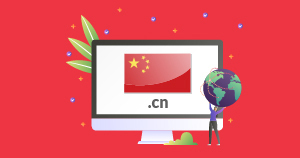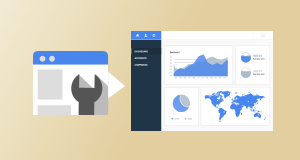Global marketing news – 15 September 2015
Yandex targets China to drive growth
The Russian search engine Yandex has opened an office in Shanghai.
It does npt plan to take on local giant Baidu in the Chinese search engine market directly, but instead intends to help Chinese businesses that want to target Russia.
In a statement, a Yandex spokesperson said: “Shanghai is now headquarters for a team that will help Chinese companies, operating in the Russian market to more effectively promote their services and products in the Russian segment of the internet using Yandex technology.”
Yandex has been offering advertising services in China since 2012, with sales in the country tripling every year since 2013.
Its physical entry into the Chinese market reflects the two countries’ increasingly close trade relationship, with imports and exports between the countries having increased significantly in recent years.
Yandex is not the first Russian internet company to open an office in China, with the popular Russian social network VK having opened an office in the country last year.
Yandex is the most popular search engine in Russia, where it has around a 60% share of the search engine market.
Yandex algorithm now penalises websites that sell links
In other Yandex-related news, the search engine has updated its algorithm to penalise websites that sell links.
Websites that sell links will now have their Yandex Quotation Index, similar to Google Page Rank, reduced to zero, thereby reducing their SEO ranking and making them unappealing to potential link buyers.
Several hundred websites are thought to have been affected by the algorithm change.
Yandex has said that once websites remove the offending links and get re-crawled, the penalty will be removed and their previous rankings will be restored.
This is not the first time that Yandex has altered its algorithm to dissuade people from using paid links to artificially boost their rankings. In May of this year, Yandex started penalising sites which bought links, making it a negative ranking factor.
New e-commerce site Matahari Mall launches in Indonesia
An e-commerce site dubbing itself “the Alibaba of Indonesia” has just launched.
Matahari Mall aims to be an e-commerce platform comparable to eBay in the West, selling everything from groceries and fashion items to tech gadgets such as smartphones and even cars.
The ambitious company wants to become the dominant e-commerce site in Indonesia, an emerging online superpower with a population of 250 million people.
In a recent study, almost 70% of Indonesians said they had engaged in mobile shopping in the last year.
The Indonesian e-commerce market is growing rapidly and is expected to be worth 4.5 billion US dollars in 2016.
Huawei to launch an e-commerce site for the Middle East
The Chinese smartphone manufacturer Huawei is to launch an e-commerce site targeting the Middle East.
The site will have both English and Arabic language options and is expected to launch at the end of October.
Huawei is already present in the Middle East but currently sells its phones through the third-party e-commerce site Souq.
It hopes that the launch of its own e-commerce site will help it to establish itself as on online brand as it moves away from having physical stores and instead turns its attentions solely online.
WhatsApp the most popular social network for German teens
And finally, WhatsApp has been revealed as the most popular social network for teenagers in Germany.
83% of teenagers questioned said they used the social messaging app, with Facebook coming in second place at 77%.
Instagram and Twitter came in distant third and fourth place respectively, with just 18% and 10% of teenagers saying they used them.
Google+ and Pinterest were even more unpopular, with just 1 in 20 youngsters being on the social networks.
The research, by inconkids & youth, questioned around 750 German teenagers aged 13 to 19.
Although Facebook is the most popular social network in most countries, WhatsApp also came in top in Argentina and Brazil.
Webcertain’s global marketing news bulletins are daily 5-minute videos, providing marketers with the latest international digital marketing news in an easy-to-digest format.
Podcast: Play in new window | Download
Elin Box
Latest posts by Elin Box (see all)
- 3 tips for digital marketing in Germany - March 12, 2024
- 3 useful facts about digital marketing in Vietnam in 2023 - August 24, 2023
- 3 useful facts about digital marketing in South Korea in 2023 - August 17, 2023





